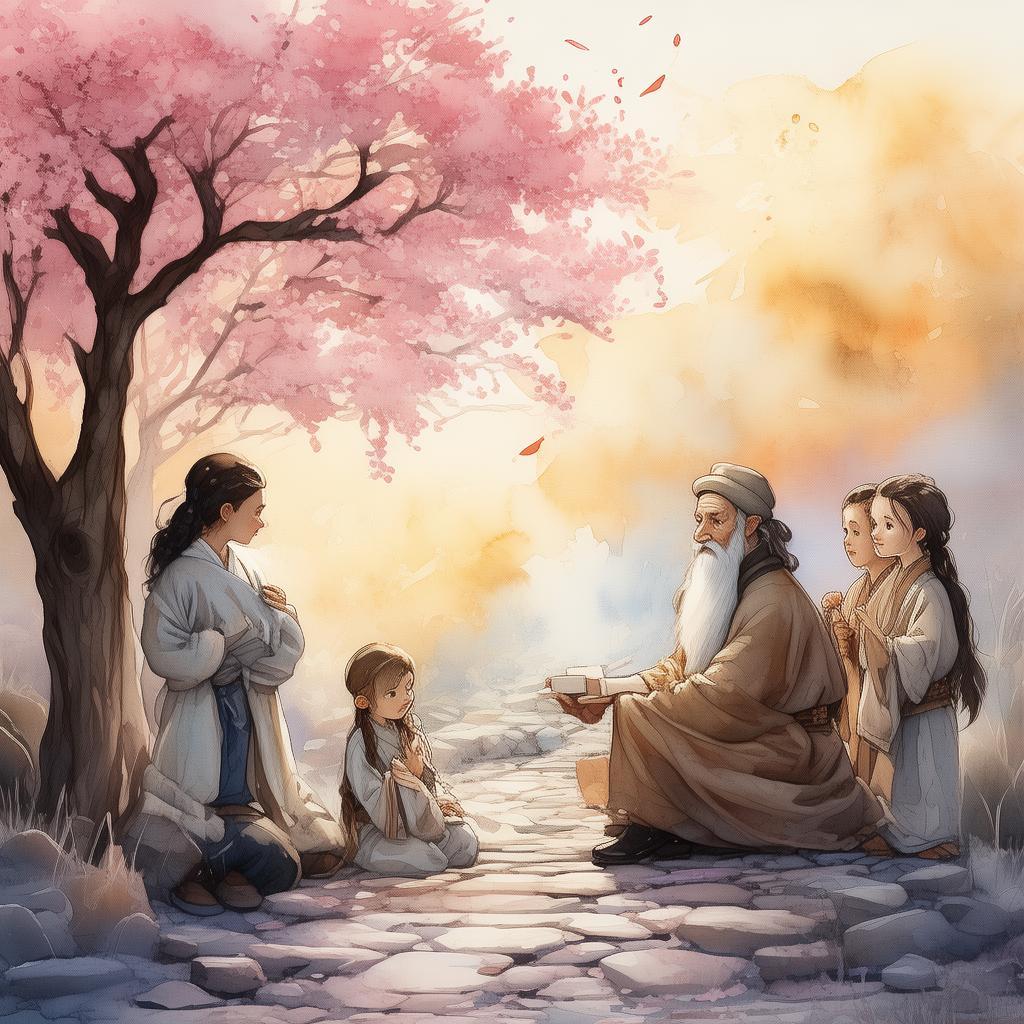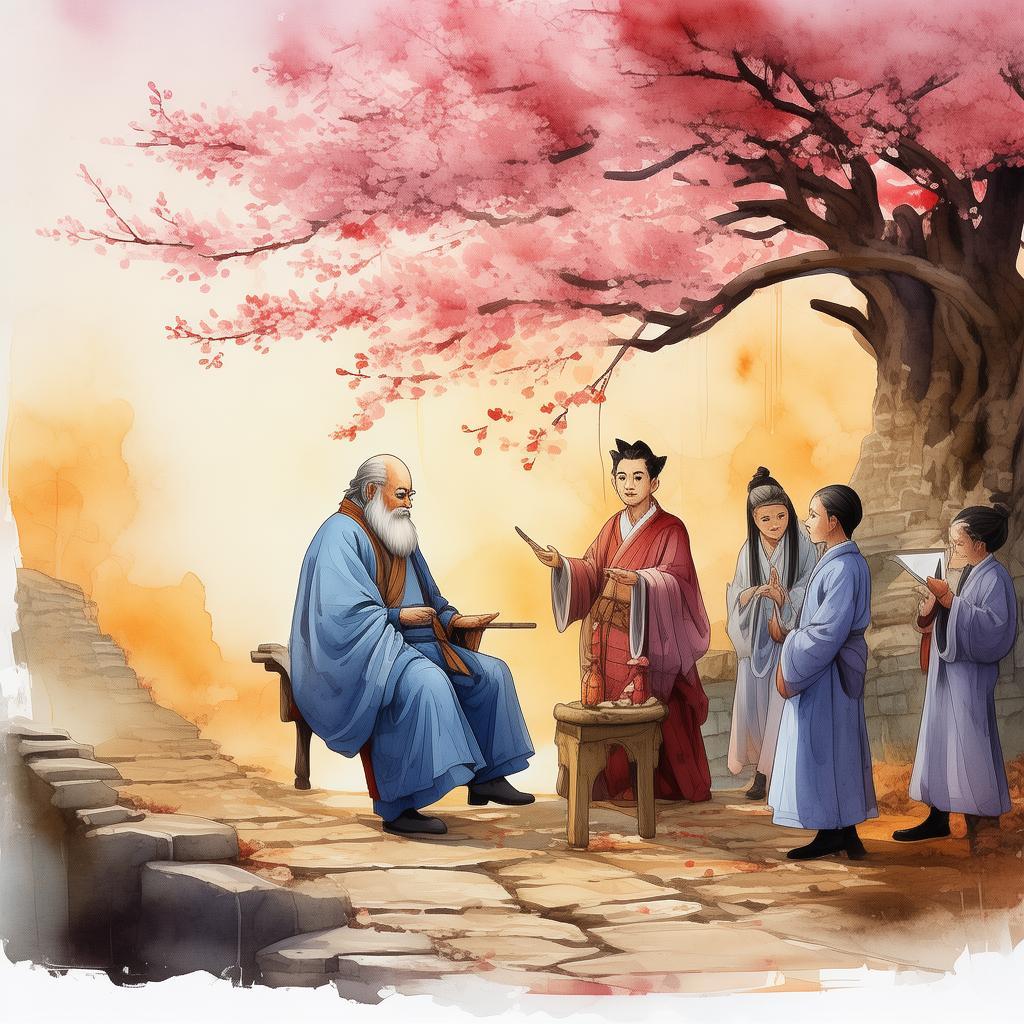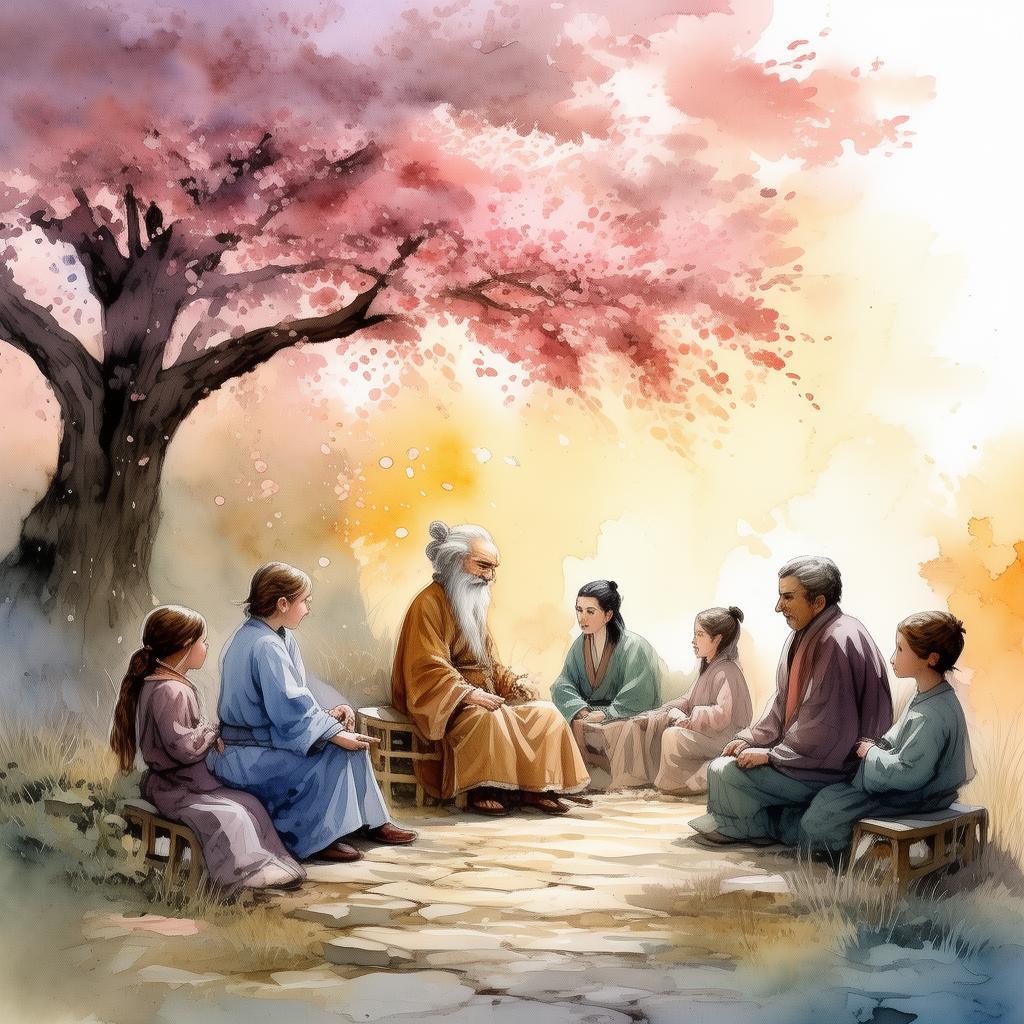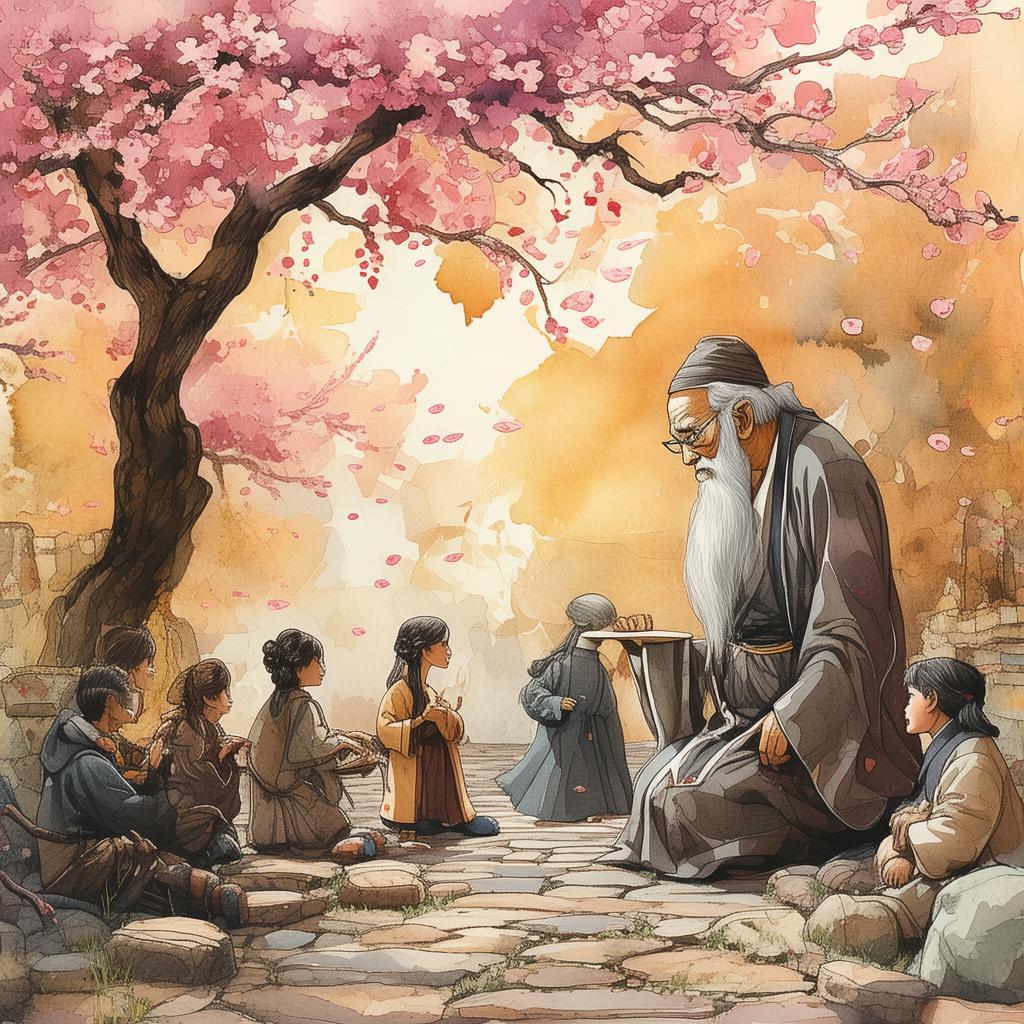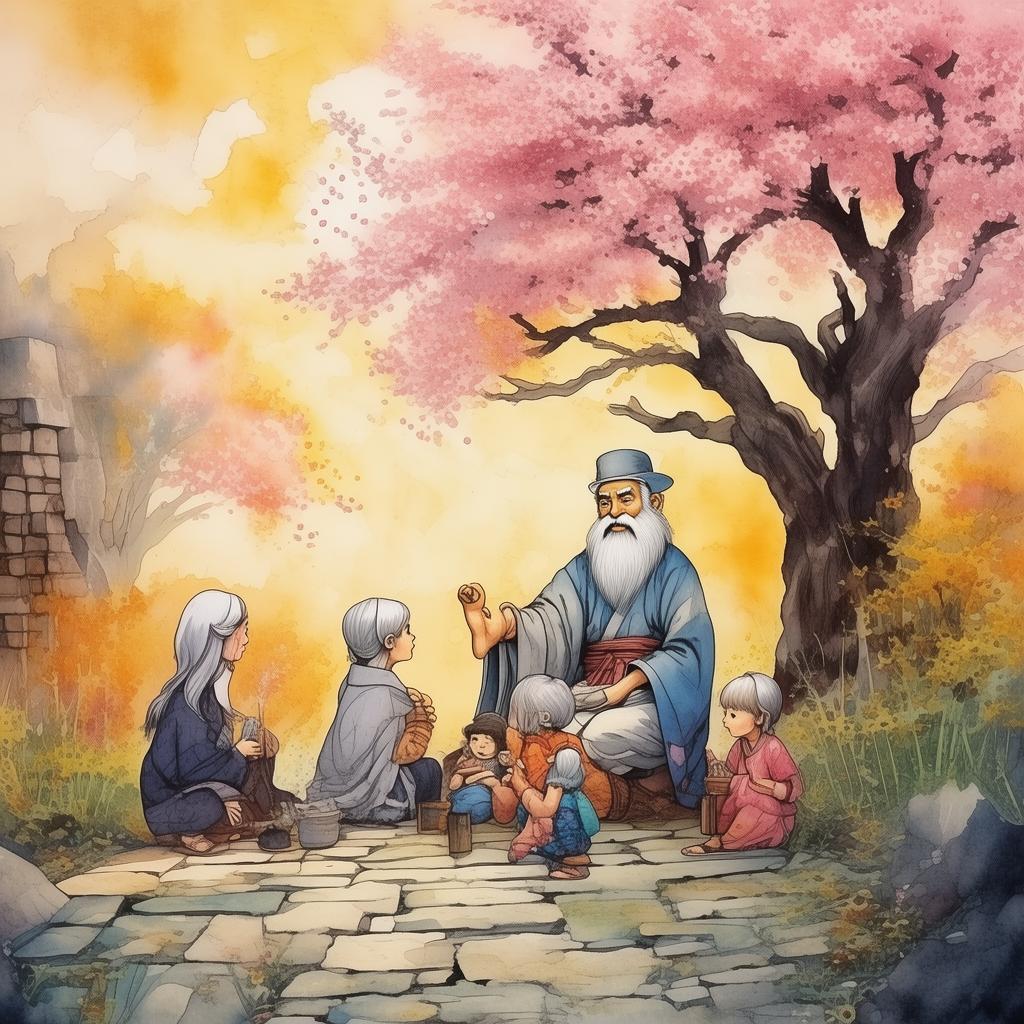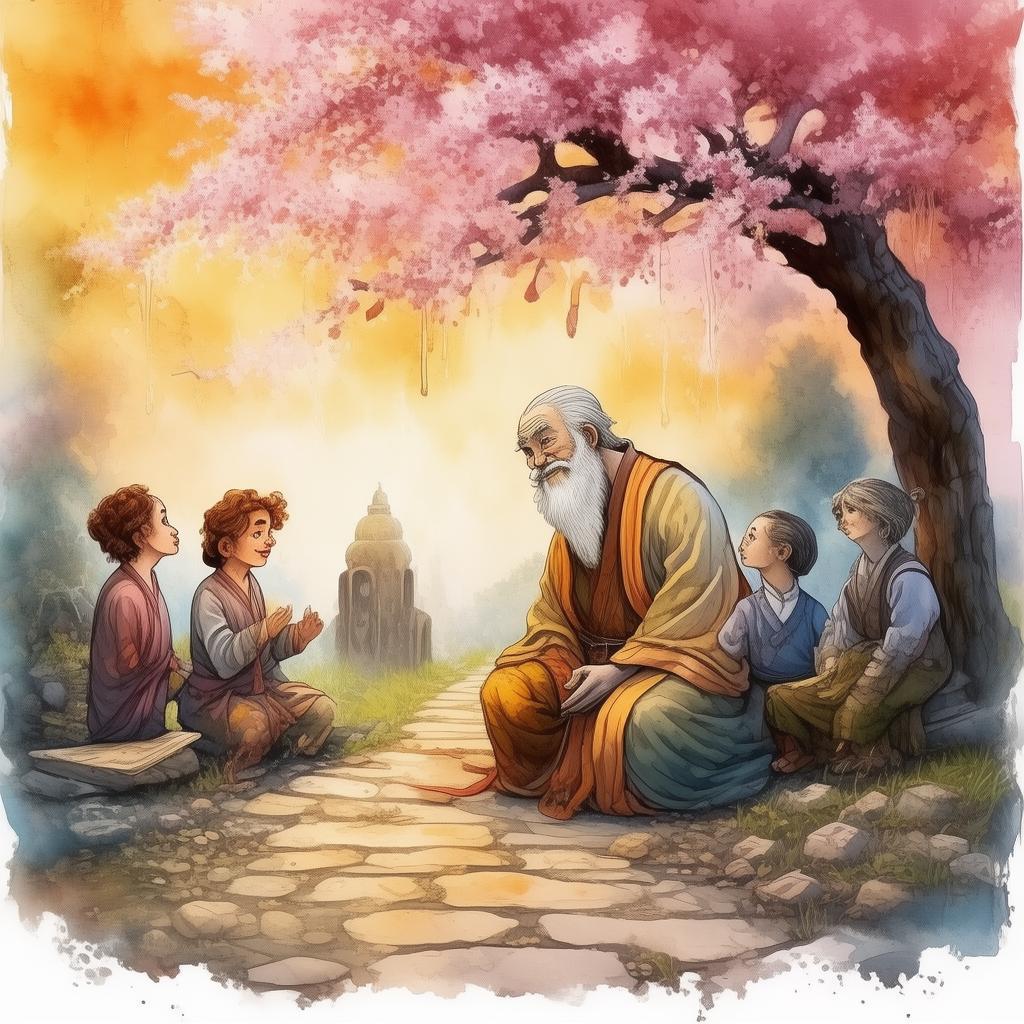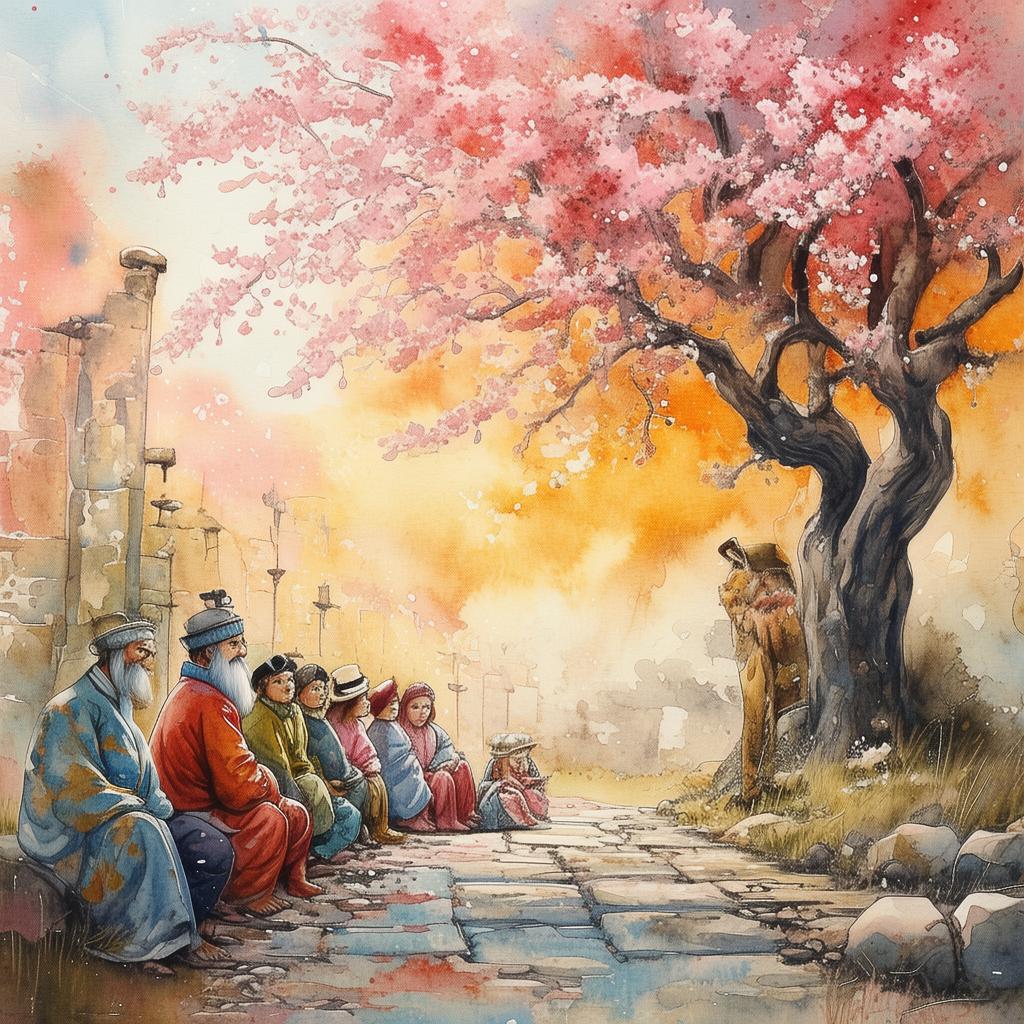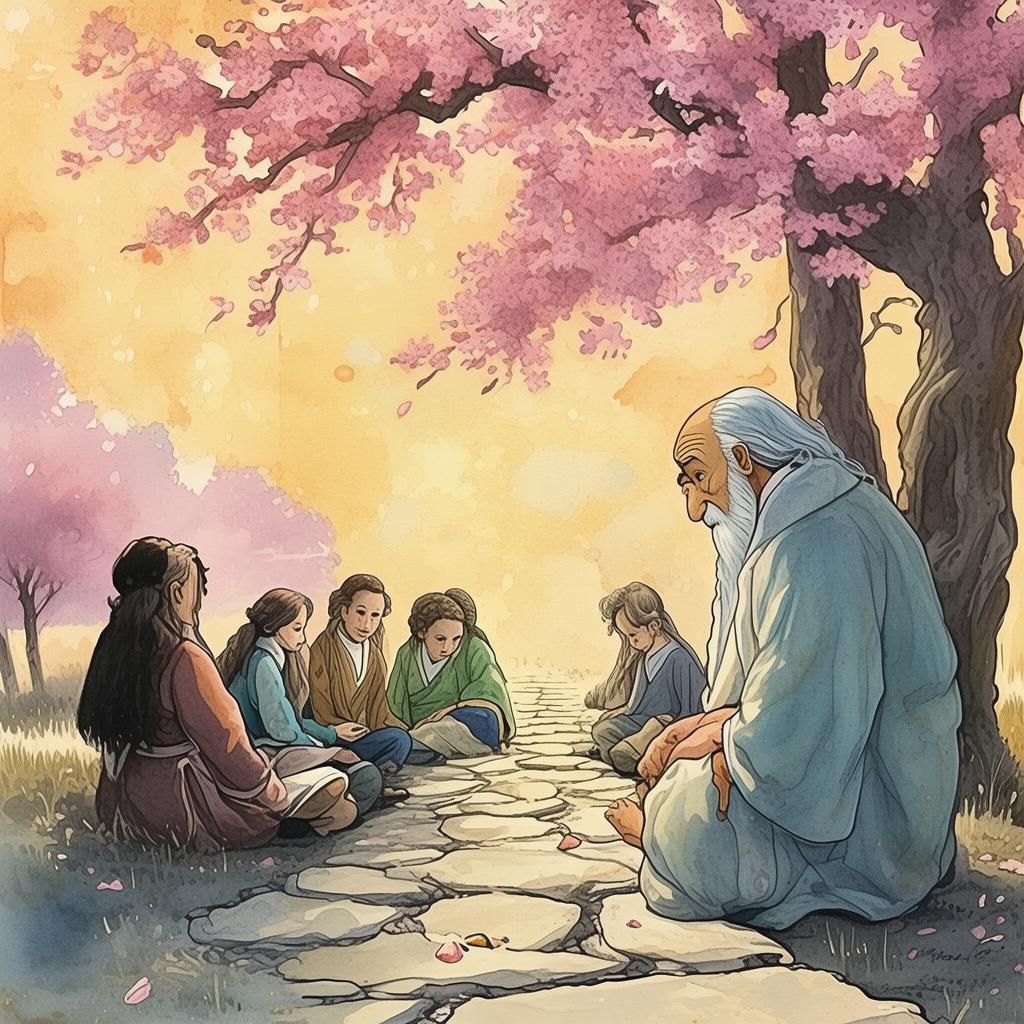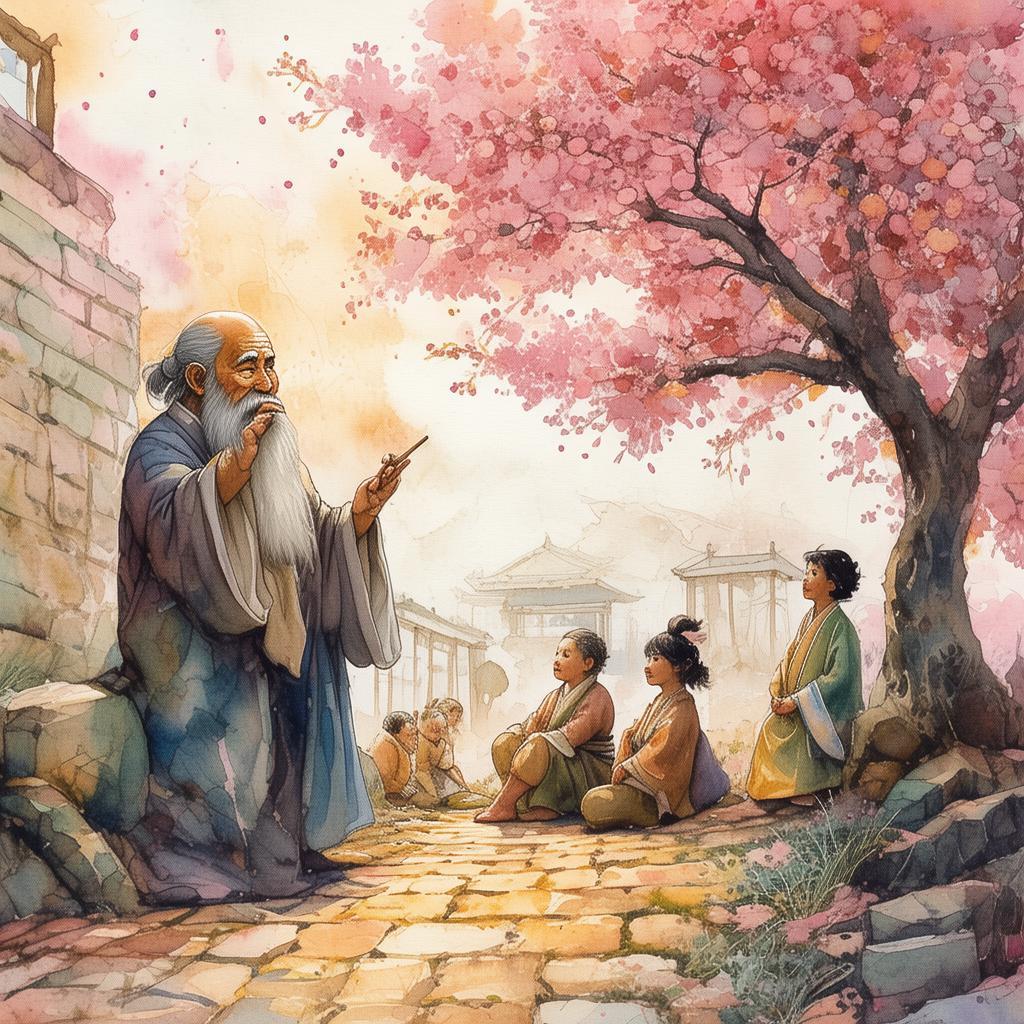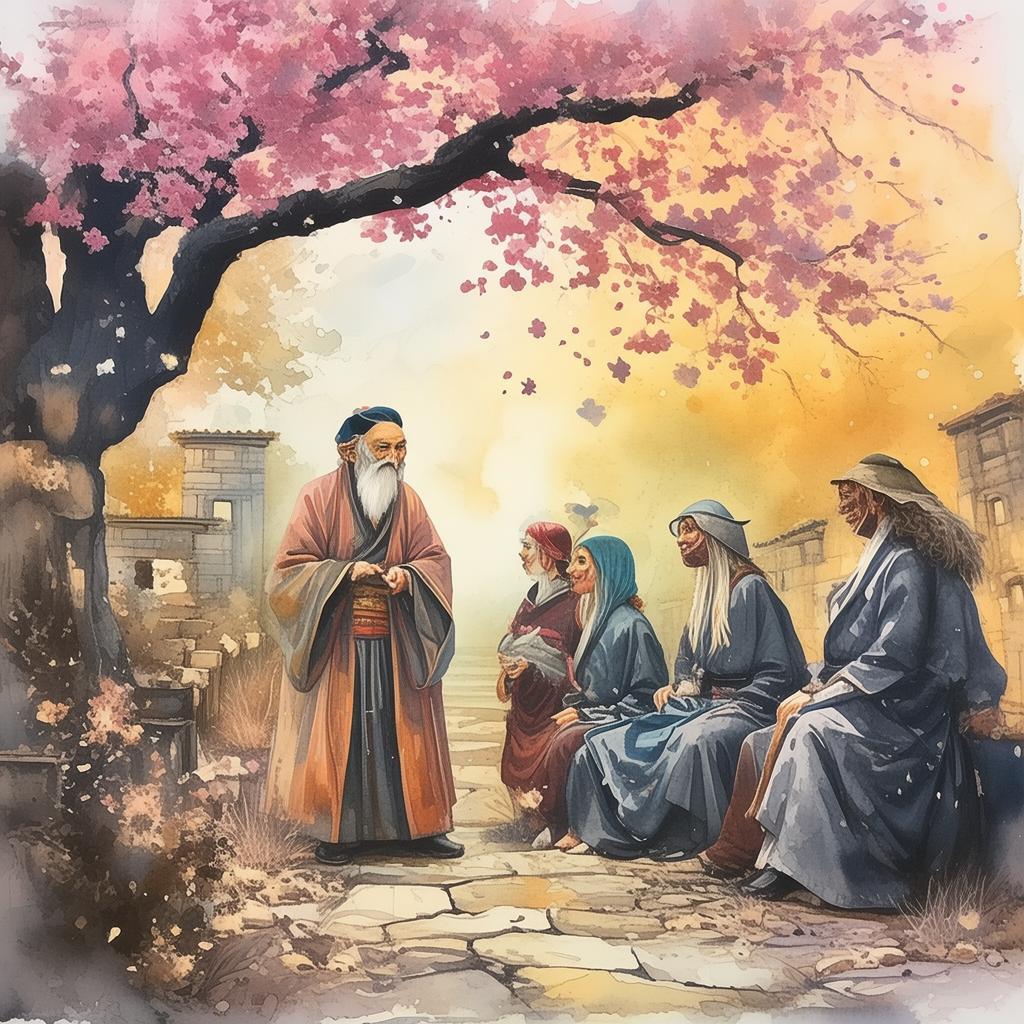The Empty Mind's Enigma
In the heart of ancient China, there lived a young philosopher named Ming. He was known for his insatiable thirst for knowledge and his unyielding pursuit of truth. Ming had heard tales of the "Riddle of the Empty Mind," a profound enigma that had eluded the greatest minds of his time. Driven by curiosity and a desire to unravel the mysteries of existence, he decided to embark on a journey to find the one who could pose this riddle.
Ming traveled far and wide, seeking out the wise and the learned. He visited monasteries, academies, and even the courts of emperors, but the riddle remained elusive. One day, as he wandered through the bustling streets of a distant city, he stumbled upon a small, unassuming tea house. The air was filled with the scent of freshly brewed tea, and the soft hum of conversation provided a soothing backdrop to the serene setting.
Intrigued by the quaint ambiance, Ming decided to take a seat and order a pot of tea. As he sipped the warm liquid, he noticed an elderly man sitting alone at the next table, his eyes deeply focused on a scroll. Ming couldn't help but feel drawn to the man's presence. After a few moments, the man looked up and locked eyes with Ming. There was something in his gaze that seemed to recognize Ming's quest.
"May I join you?" Ming asked, his voice barely above a whisper.
The man nodded, his eyes still fixed on the scroll. "Of course," he replied. "I am the keeper of the Riddle of the Empty Mind."
Ming's heart raced with excitement. "I have been seeking you for years," he said. "Please, tell me the riddle."
The man smiled, a hint of mischief in his eyes. "The riddle is simple," he began. "But to understand it, you must first empty your mind."
Ming's brow furrowed in confusion. "Empty my mind? But how can one do that?"
The man chuckled softly. "The mind is a vast ocean, Ming. To understand the riddle, you must first learn to navigate its currents. Only then can you see the truth that lies beyond the surface."
Ming spent the next few days with the man, engaging in deep conversations about philosophy, life, and the nature of existence. The man spoke of emptiness not as a void, but as a state of being where one could truly perceive the world and themselves. Ming began to understand that the riddle was not about the absence of thought, but about the absence of preconceived notions and biases.
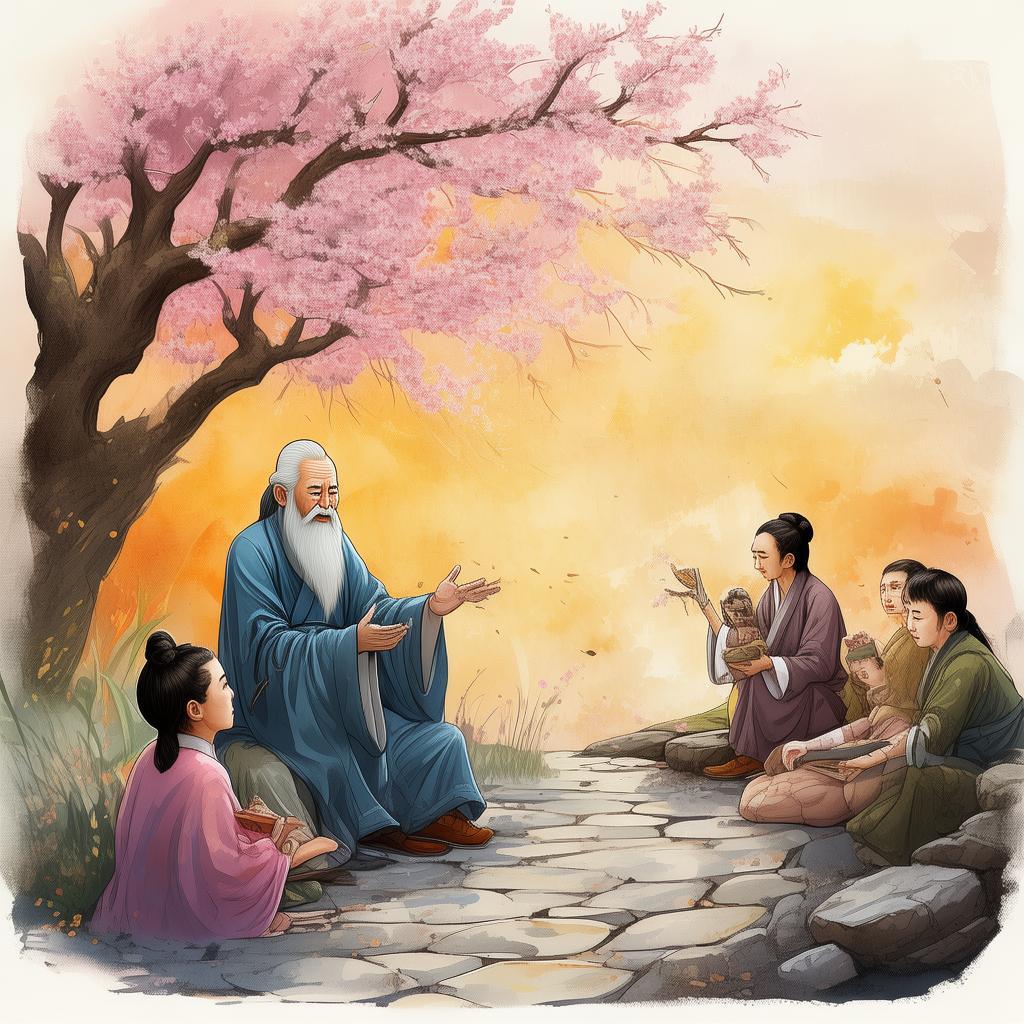
One evening, as the sun dipped below the horizon, casting a golden glow over the tea house, the man presented Ming with a challenge. "Go to the temple on the hill," he said. "There, you will find a statue of a wise man. Look into his eyes and tell me what you see."
Ming rose from his seat and made his way to the temple. As he approached the statue, he felt a strange sense of calm wash over him. The statue's eyes seemed to hold a timeless wisdom, a reflection of the universe itself. Ming took a deep breath and looked into the eyes of the wise man.
What he saw was not a face, but a void. It was as if the statue's eyes were windows into the very essence of existence. Ming felt a surge of realization wash over him. He understood that the riddle was not about emptying the mind, but about seeing the world as it truly is, without the filters of his own biases and preconceptions.
Returning to the tea house, Ming found the man waiting for him. "I have seen the truth," Ming said, his voice filled with awe.
The man nodded. "You have done well, Ming. The riddle of the empty mind is about the realization that the mind is not a container of knowledge, but a vessel for perception. It is only when we let go of our preconceptions that we can truly understand the world and ourselves."
Ming spent the following days reflecting on the man's words. He realized that his entire life had been shaped by the beliefs and assumptions he had held dear. The riddle had taught him that true enlightenment came from embracing the unknown and the unexplainable.
As Ming prepared to leave the tea house, the man presented him with a parting gift—a small, intricately carved wooden box. "This box holds a piece of the universe," the man said. "Open it when you need to remember the lessons of the empty mind."
Ming took the box and thanked the man. As he walked away from the tea house, he felt a newfound sense of clarity and purpose. He understood that the journey of enlightenment was a lifelong pursuit, one that required constant vigilance and openness to the mysteries of life.
The Empty Mind's Enigma had not only provided Ming with a profound understanding of himself and the world, but it had also ignited a spark within him that would inspire him to continue seeking truth and wisdom. And so, with the box in hand, Ming set out once more, ready to face the challenges and mysteries that lay ahead.
✨ Original Statement ✨
All articles published on this website (including but not limited to text, images, videos, and other content) are original or authorized for reposting and are protected by relevant laws. Without the explicit written permission of this website, no individual or organization may copy, modify, repost, or use the content for commercial purposes.
If you need to quote or cooperate, please contact this site for authorization. We reserve the right to pursue legal responsibility for any unauthorized use.
Hereby declared.
